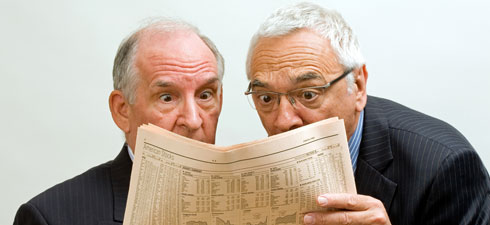Have you noticed that the euro crisis is raising increasingly urgent questions about our democracies like no-one's business? For generations, democracy was quasi-sacred and not up for discussion in Europe. However, the appointment in both Greece and Italy of technocratic governments has now made the question a pertinent one.
As have the increasingly stringent requirements that Europe, under pressure from Germany, has imposed on national policy. As recently as Wednesday last, the European Commission once again warned that that it intends to approve state budgets before they are submitted to national parliaments.
And what are we to make of the strength of national democracies when even fiscally orthodox countries like Germany and Finland start to feel the effect of rising interest rates? Last Wednesday, Berlin’s latest bond issue was only half successful. What’s going on?
Let’s look at Europe. What future for national governments? To cleave to the German model of stability, 27 autonomous countries must put their houses in order, consigning national considerations - like the Netherlands’ Polder model, or that of the Rhineland or the Scandinavian welfare model - to the past.
Viewing Brussels with cynicism
Election debates as in Spain or the ongoing government negotiations in Belgium turn mainly on what Europe has already imposed. The main core business that the state retained until now - social, migration and justice policy - is also gradually wrapped up in a straitjacket that makes the national margins for a free democratic debate illusory. While political communication specialists may do their utmost to make national politicians appear relevant, they know that the political debate is determined elsewhere.
This is clearly to be seen in the streets of the European district of Brussels where government leaders and their ministers come and go every day. Diplomats of the Permanent Representations to the EU are assuming more and more power from the ministries in their capitals, leaving them rather resentful.
They are gradually forming the embryo of a new type of intergovernmental administration with the European Commission as its secretariat. Democratic hopes should come from the European Parliament. Indeed, it has been attempting to gain more power for a decade, but it is not even allowed to put its own bills forward. And in the EP’s political groupings, national interests remain deeply rooted.
The fourth estate, the press, has already adapted. The major international agencies, the newspapers and television companies send increasingly larger contingents to Brussels and leave them there, in spite of the crisis in the media. The power of the major British and American news agencies is currently so great that it is unprofitable for smaller EU countries to fund their own correspondents.
Thus, the major economic and financial media set the tone, and none too surprisingly they are mainly Anglo-Saxon, from outside of the eurozone. They view Brussels with cynicism now that the eurozone, after ten years of relative success, is showing major cracks.
A temporary state of affairs?
The pink-coloured international newspapers including the Financial Times partly set the agenda for Frankfurt and Brussels, who to these worldwide megaphones have no choice other than to respond.
Meanwhile, the reply coming from national capitals and media is often a defensive kneejerk reaction to 'faraway Brussels'. Read the German tabloid Bild. And this is what the politicians seeking mandates during national elections home in on with their radars.
The best we can hope for is that it is just a temporary state of affairs. If this crisis could make the wider population see and feel that the power to make decisions concerning income and welfare must be lifted to a European level, this would be the great educational value of this crisis.
Because it’s at a European level that institutions still stand a chance of getting to grips with the blind 'markets that dictate the law to Europe'. Even Angela Merkel has to accept this, or she will also succumb.
Was this article useful? If so we are delighted!
It is freely available because we believe that the right to free and independent information is essential for democracy. But this right is not guaranteed forever, and independence comes at a cost. We need your support in order to continue publishing independent, multilingual news for all Europeans.
Discover our subscription offers and their exclusive benefits and become a member of our community now!












